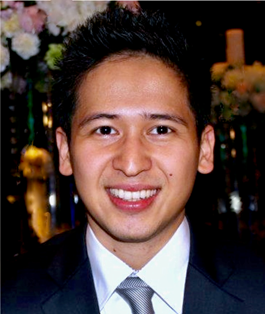St Bartholomew’s registrar scoops prestigious cardiology prize for MRI discovery

Dr Nay Aung, a specialist registrar at St Bartholomew’s Hospital, has been awarded the Royal Society of Medicine President’s prize for best cardiology PhD project.
He presented his doctoral thesis on the genetic make-up of the heart using magnetic resonance imaging (MRI).
The work discovered 14 regions in the human genome that regulate individual differences in the structure of the heart. It also produced personalised genetic risk scores that can be used to spot people at risk of heart failure.
The award panel recognised Dr Aung’s efforts in applying artificial intelligence (AI) to analyse the MRI scans of 17,000 volunteers and performing an in-depth evaluation of genetic data to uncover the genetic basis of heart structure and function.
The study was conducted in the UK Biobank population imaging study, in collaboration with University of Oxford and Multi-Ethnic Study of Atherosclerosis from the USA.
He also receives £1,000 for his efforts.
Alongside his role within the Barts Heart Centre at St Bartholomew’s Hospital, Dr Aung is also a National Institute for Health Research (NIHR) academic clinical lecturer.
He was previously awarded a Wellcome Trust Research Training Fellowship to pursue his doctoral degree under the supervision of Professors Steffen Petersen and Patricia Munroe at Queen Mary University of London.
His research interests include application of genomics to dissect the biology of common and complex cardiovascular diseases, development of personalised risk prediction algorithms and automation of image analysis by artificial intelligence.
He has been appointed as the data configuration lead for Barts BioResource and he is working on the comprehensive annotation of unstructured text data by natural language processing techniques.
Dr Aung said: “AI tools allowed us to analyse the MRI images in a fraction of the time it would otherwise have taken. This breakthrough in technology enabled the first large-scale genetic analysis of heart MRI studies.
“The study provides deeper insights into the role of genetics in heart biology, which we hope will assist in making new medicines to treat heart failure.”
Professor Steffen Petersen said: “Previous studies have shown that differences in the size and function of the heart are partly influenced by genes, but we have not really understood the extent of that genetic influence.
“This study has shown that several genes known to be important in heart failure also appear to regulate the heart size and function in healthy people.
“That understanding of the genetic basis of heart structure and function in the general population improves our knowledge of how heart failure evolves.
“Congratulations to Nay for winning this coveted award.”
Read more
